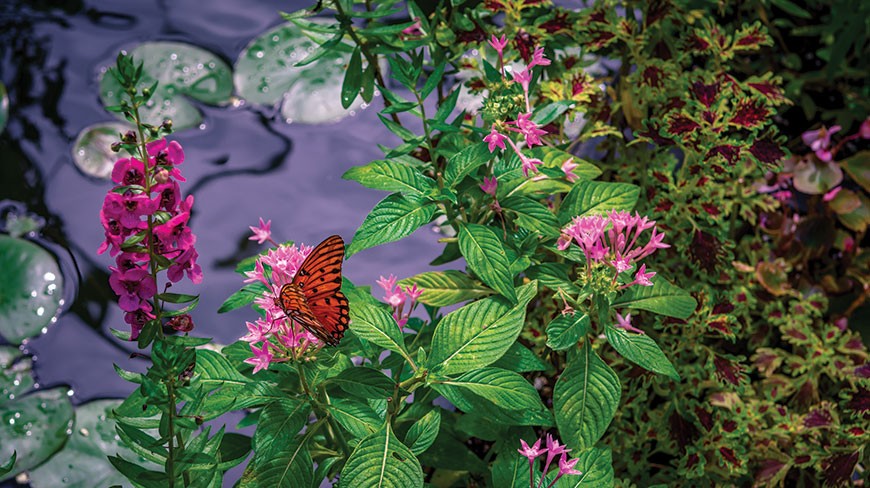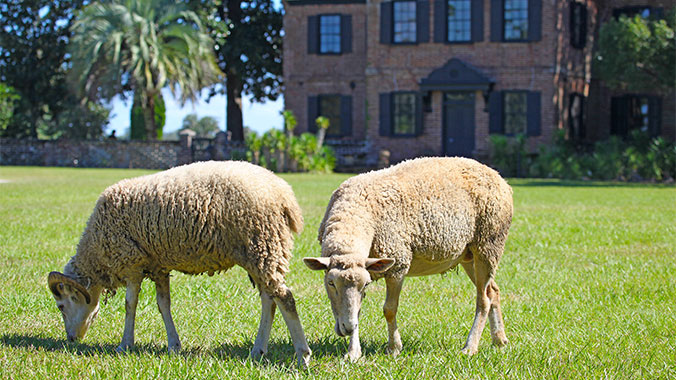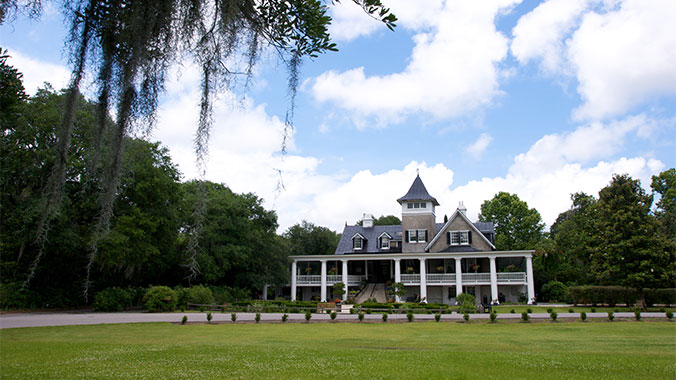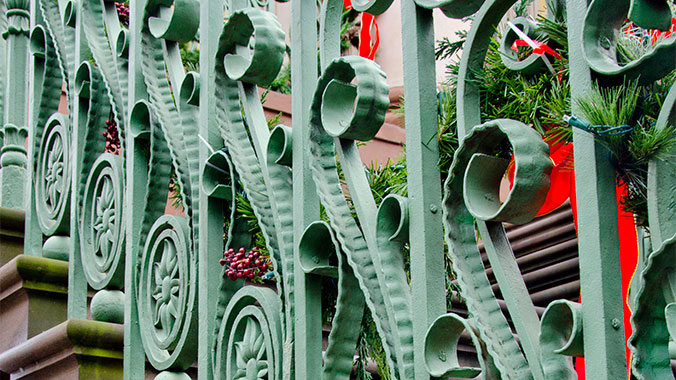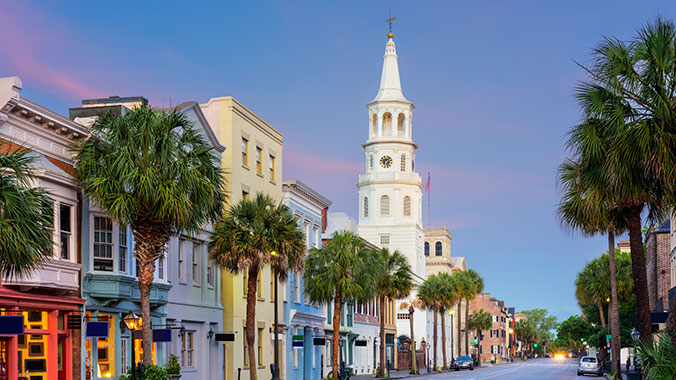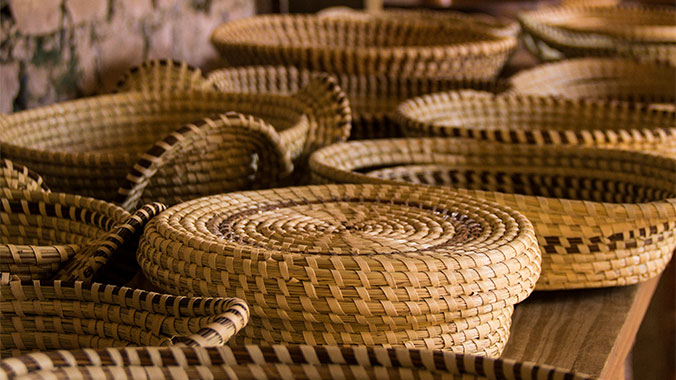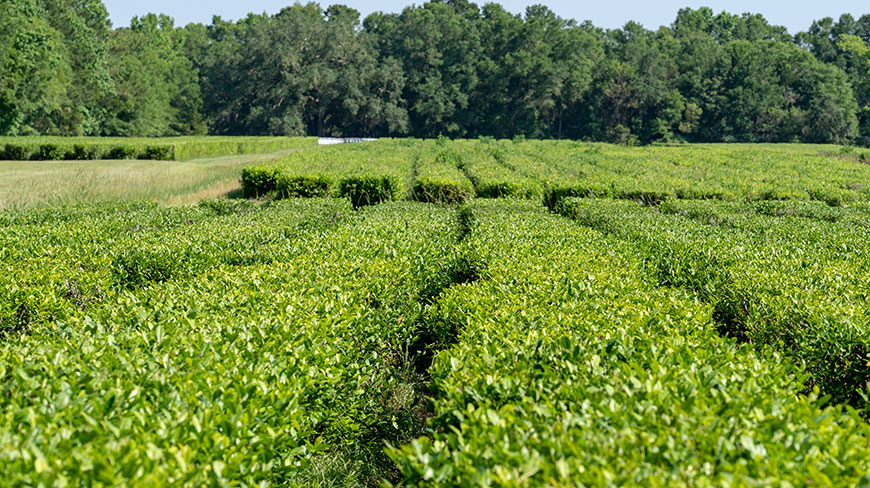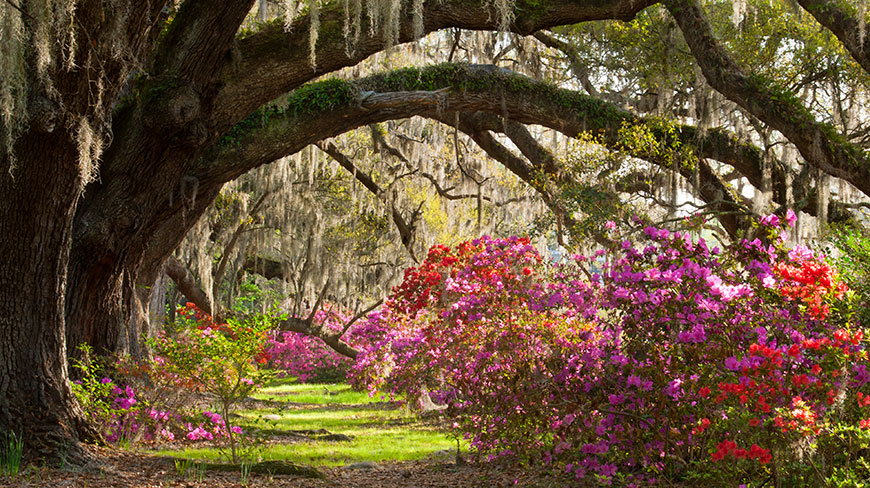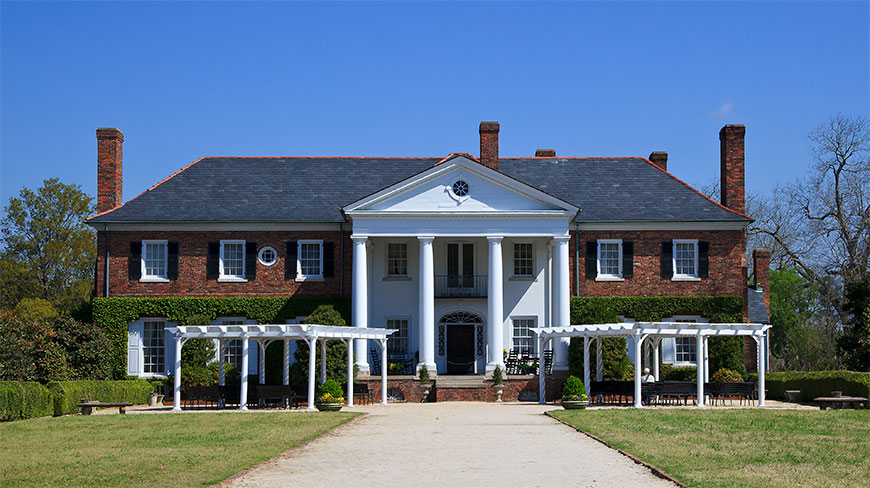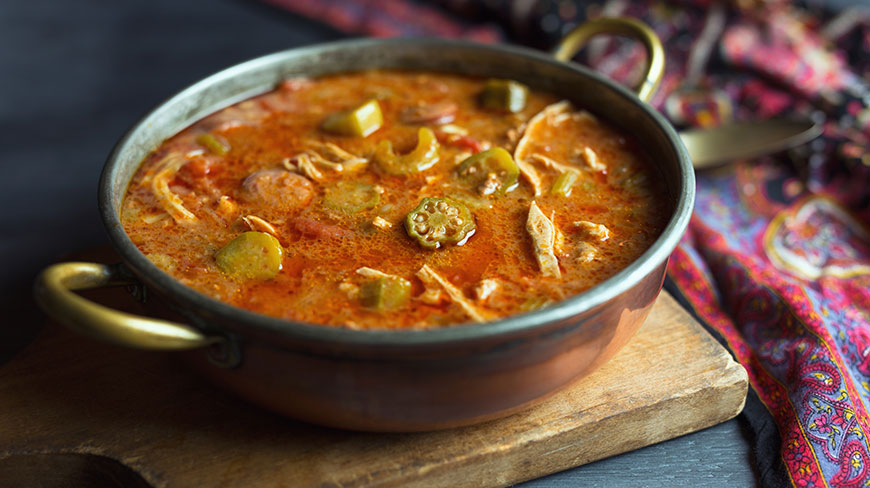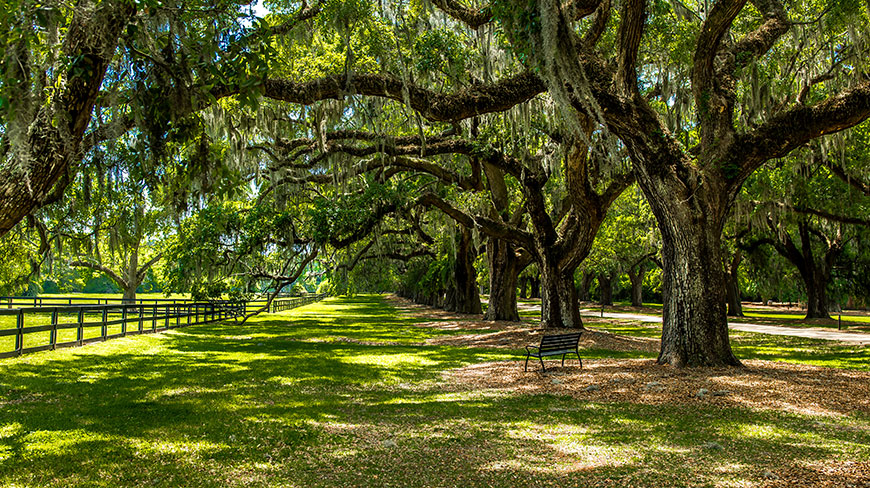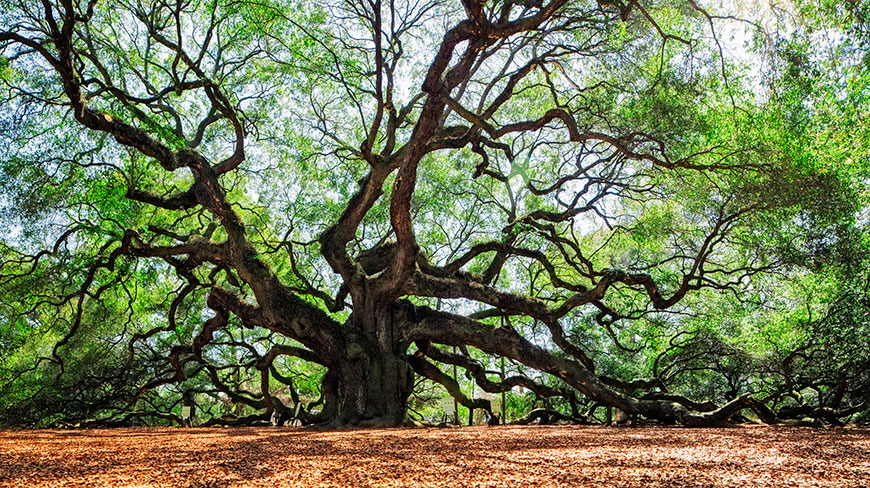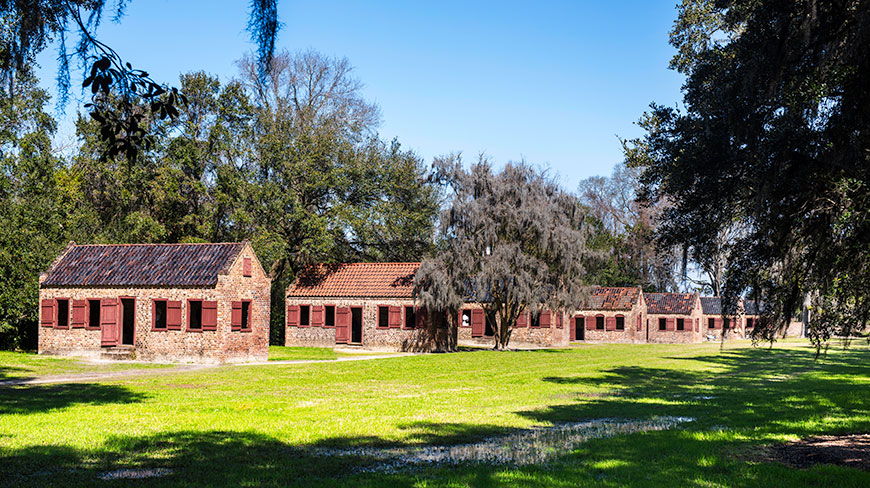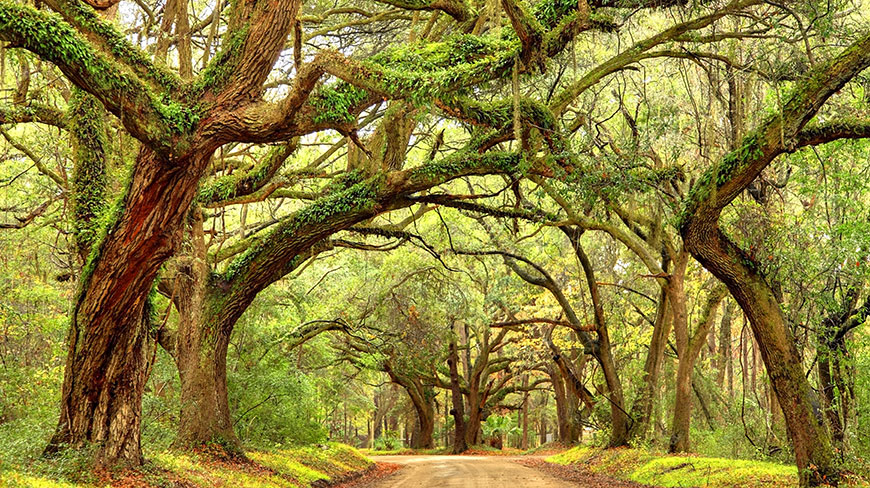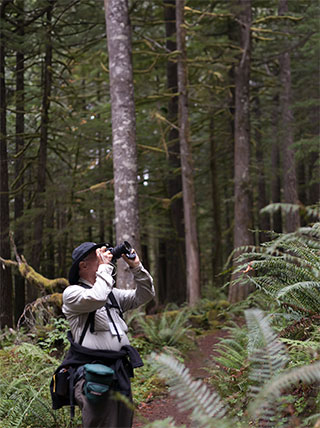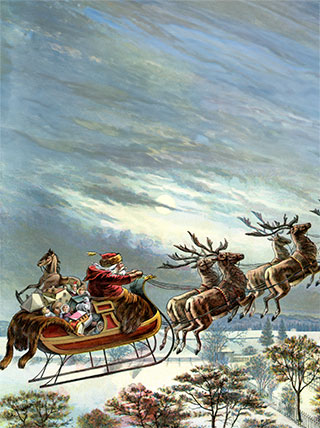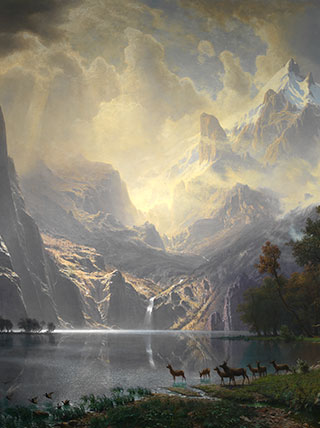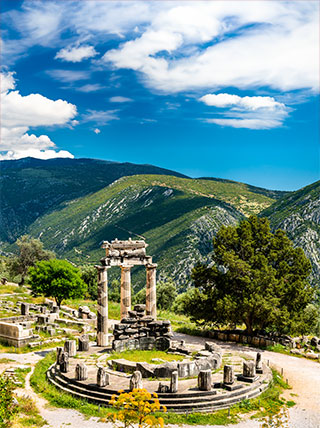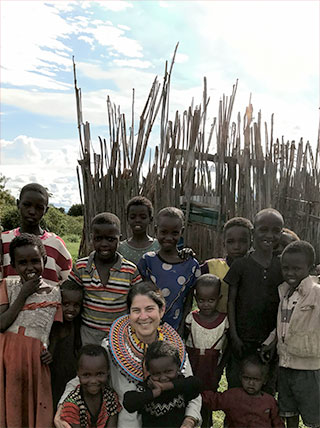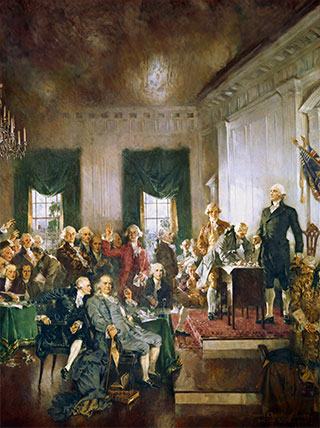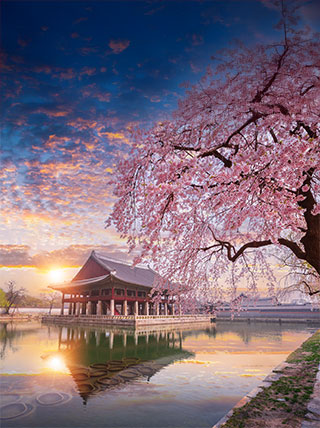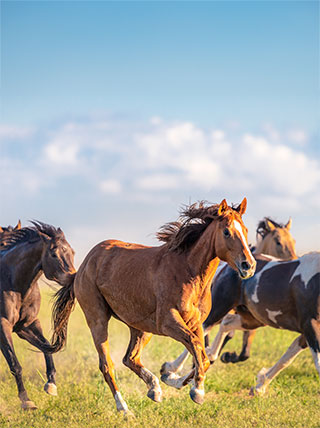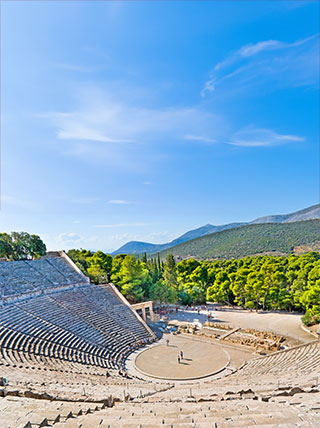South Carolina
Charleston at a Slower Pace: A Journey Through Time & Culture
Program No. 2305660MEADV-1116-60
Explore the culture and unique story of Charleston at a slower pace — discover plantation homes, Lowcountry cuisine, antebellum architecture and all the South’s myriad charms.
Enroll with Confidence
We want your Road Scholar learning adventure to be something to look forward to—not worry about. Learn more
Protecting the Environment
We offset a portion of the emissions created by your travel. Learn more
Prefer to enroll or inquire by phone?
800-454-5768
Select your type of room
Price will update based on selection
Prices displayed below are based on per person,doubleoccupancy.
DATES
& starting prices
PRICES
DATES
& starting prices
PRICES
Not seeing the date you're looking for?
To be notified if dates of this program become available, click the button below.
This date is available to book as a private experience for your group!
6 days
5 nights
11 meals
5B 3L 3D
1
Check-in, Registration, Orientation, Welcome Dinner
Charleston, SC
3
Boone Hall Plantation, African American Museum
Charleston, SC
5
Tea Garden, Angel Oak, Free Afternoon
Charleston, SC
6
Program Concludes
Charleston, SC
At a Glance
Take a step back in time — and pace — and discover one of America’s most historic and beautiful cities. Throughout Charleston and the coastal Lowcountry, stroll through manicured gardens, study ornate home interiors and dive into antebellum plantation history. Hear the stories of those who lived and worked in these stately homes and on plantations, black and white, enslaved and free. Learn about the Gullah community, descendants of enslaved people who have preserved more of their African heritage than any other community in the country.
Activity Level
On Your Feet
Walking up to one mile and standing up to an hour on field trips. Some uneven surfaces, especially at the plantations and in the Historic District.
Best of all, you’ll…
- Step inside the Aiken-Rhett and Joseph Manigault homes, as well as Boone Hall Plantation, and hear jazz, gospel and Gullah songs come to life in the historic Circular Congregational Church.
- Explore the International African American Museum, the Charleston Museum and the only tea garden in the U.S.
- Learn about the history of Charleston, Lowcountry cuisine, sweetgrass basket-weaving and Gullah culture.
General Notes
You may be interested in a more active version of this program, "Signature City Charleston: Historic Plantations and Gardens" (#19403).
Featured Expert
All trip experts
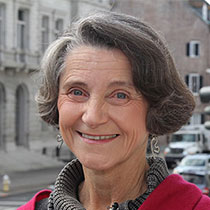
Ruth Miller
Ruth Miller, a graduate of Duke University, has lived all over America and journeyed throughout the world. As a Charleston historian and excursion leader, she enjoys tying local history into the American story and worldwide events. Ruth is the author and co-author of numerous books, including “Charleston Charlie — A Family Activity Book for Kids of All Ages,” “Touring the Tombstones,” and “The Angel Oak Story.” She is a member of the South Carolina Historical Society and the National Trust.
Please note: This expert may not be available for every date of this program.

Ruth Miller
View biography
Ruth Miller, a graduate of Duke University, has lived all over America and journeyed throughout the world. As a Charleston historian and excursion leader, she enjoys tying local history into the American story and worldwide events. Ruth is the author and co-author of numerous books, including “Charleston Charlie — A Family Activity Book for Kids of All Ages,” “Touring the Tombstones,” and “The Angel Oak Story.” She is a member of the South Carolina Historical Society and the National Trust.
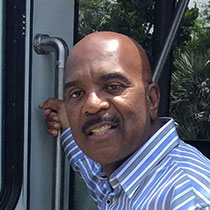
Al Miller
View biography
Al Miller received a bachelor’s degree in English, speech and drama from Baptist College — now Charleston Southern University. He is a recognized historian specializing in local, black history with emphasis on the Gullah-Geechee culture. He brings his musical talent to his lectures for a unique perspective. Al enjoys leading educational excursions, is a licensed real estate agent, as well as a historian and lecturer on black history. He is also a member of numerous organizations, including the Choraliers Music Club of Charleston, Alpha Phi Fraternity and St. James A.M.E. Church.

Darryl Stoneworth
View biography
Darryl Stoneworth, along with wife Angela, has been selling home-crafted sweetgrass baskets in the Charleston City Market since May 2009. If you happen by his stand, you'll know Darryl by his omnipresent smile. The couple is also constructing their first roadside basket stand along Highway 17N in Mount Pleasant, N.C. The town has renamed and dedicated this stretch of the highway in tribute to the hamlet's sweetgrass basket makers.
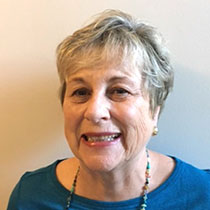
Georgia Murphy
View biography
Georgia Murphy grew up in a small middle Georgia town, but has called Charleston home for the past 37 years. She has been a licensed excursion leader for the City of Charleston for 28 years, and considers sharing the beauty and history of Charleston and the Carolina Low Country as one of her greatest joys.
Suggested Reading List
(8 books)
Visit the Road Scholar Bookshop
You can find many of the books we recommend at the Road Scholar store on bookshop.org, a website that supports local bookstores.
Charleston at a Slower Pace: A Journey Through Time & Culture
Program Number: 23056
Charleston: City of Memory
South of Broad
Against the sumptuous backdrop of Charleston, South Carolina, South of Broad gathers a unique cast of sinners and saints. Leopold Bloom King, our narrator, is the son of an amiable, loving father who teaches science at the local high school. His mother, an ex-nun, is the high school principal and a well-known Joyce scholar. After Leo's older brother commits suicide at the age of thirteen, the family struggles with the shattering effects of his death, and Leo, lonely and isolated, searches for something to sustain him. Eventually, he finds his answer when he becomes part of a tightly knit group of high school seniors that includes friends Sheba and Trevor Poe, glamorous twins with an alcoholic mother and a prison-escapee father; hardscrabble mountain runaways Niles and Starla Whitehead; socialite Molly Huger and her boyfriend, Chadworth Rutledge X; and an ever-widening circle whose liaisons will ripple across two decades-from 1960s counterculture through the dawn of the AIDS crisis in the 1980s.
The ties among them endure for years, surviving marriages happy and troubled, unrequited loves and unspoken longings, hard-won successes and devastating breakdowns, and Charleston's dark legacy of racism and class divisions. But the final test of friendship that brings them to San Francisco is something no one is prepared for. South of Broad is Pat Conroy at his finest; a long-awaited work from a great American writer whose passion for life and language knows no bounds.
Invention of Wings
The Invention of Wings, a powerful and sweeping historical novel by Sue Monk Kidd, begins, fittingly, with an image of flight: Hetty “Handful”, who has grown up as a slave in early nineteenth century Charleston, recalls the night her mother told her that her ancestors in Africa could fly over trees and clouds. That day, Handful’s mother, Charlotte, gave her daughter the gift of hope— the possibility that someday she might regain her wings and fly to freedom. Throughout Kidd’s exquisitely written story, Handful struggles, sometimes with quiet dissidence, sometimes with open rebellion, to cultivate a belief in the invincibility of her spirit and in the sacred truth that one does not need actual wings in order to rise.
A Short History of Charleston
A concise small history of Charleston that is easy to read and enjoyable.
Very Charleston: A Celebration of History, Culture, and Lowcountry Charm
Cobblestone streets leading to perfectly preserved historic homes. Intricate wrought-iron gates opening to lush, fragrant gardens. A skyline of steeples and a river harbor bustling with schooners and sailboats. Charleston is one of America's most charming cities.In vibrant watercolors and detailed sketches, artist Diana Gessler captures the beauty and riches that make Charleston so unique: White Point Gardens, the Spoleto Festival, Rainbow Row, Waterfront Park, Fort Moultrie, the beaches of Sullivan's Island, sumptuous Lowcountry cuisine, and handmade sweetgrass baskets. Full of fascinating details--on everything from the art of early entertaining, the city's inspired architectural and garden designs, and George Washington's Southern tour to famous Charlestonians and the flags of Sumter--Very Charleston celebrates the city, the Lowcountry, the people, and our history. Hand-lettered and full color throughout, Very Charleston includes maps, an index, and a handy appendix of sites.
With her cheerful illustrations and love for discovering little-known facts, Diana Gessler has created both an entertaining guide and an irresistible keepsake for visitors and Charlestonians alike.
Allegiance: Fort Sumter, Charleston, and the Beginning of the Civil War
An original and deeply human portrait of soldiers and civilians caught in the vortex of war.
So vividly does Allegiance re-create the events leading to the firing of the first shot of the Civil War on April 12, 1861, that we can feel the fabric of the Union tearing apart. It is a tense and surprising story, filled with indecisive bureaucrats, uninformed leaders, hotheaded politicians, and dedicated and honorable soldiers on both sides.
The six-month-long agony that began with Lincoln's election in November sputtered from one crisis to the next until Lincoln's inauguration, and finally exploded as the soldiers at Sumter neared starvation. At the center of this dramatic narrative is the heroic figure of Major Robert Anderson, a soldier whose experience had taught him above all that war is the poorest form of policy. With little help from Washington, D.C., Anderson almost single-handedly forestalled the beginning of the war until he finally had no choice but to fight.
David Detzer's decade-long research illuminates the passions that led to the fighting, the sober reflections of the man who restrained its outbreak, and individuals on both sides who changed American history. No other historian has given us a clearer or more intimate picture of the human drama of Fort Sumter.
The Angel Oak Story
The Angel Oak is a Southern live oak tree located in Angel Oak Park, in Charleston, South Carolina, on Johns Island, one of South Carolina's Sea Islands. It is estimated to be 300-400 years old, stands 65 ft (20 m) tall, measures 28 ft (8.5 m) in circumference, and shades with its crown an area of 17,000 square feet. This book goes in depth regarding the history of this mighty tree.
A Witness to History: Charleston's Old Exchange and Provost Dungeon
The Old Exchange and Provost Dungeon in Charleston, South Carolina, is one of the great buildings of Colonial America. Serving as city hall, customs house, post office and prison; as the British Headquarters during the occupation of Charles Towne and then host to a great ball honoring George Washington, the Exchange has been an eyewitness to America’s history. This stoic building-—designated a National Historic Landmark in 1975—-has been described as the best example of the dignity and ornament of the traditional English “exchange-town hall” design of the eighteenth century built in the United States. From within its Great Hall to deep below in the Provost Dungeon, the Exchange has played a vital role in American history. Andrus’ and Miller’s fast-paced and readable survey of the history and significance of the Old Exchange Building will appeal to visitor and serious historian alike.
Program
At a Glance
Duration
6 days
Program Begins
Charleston, SC
Program Concludes
Charleston, SC
Meals
11
| 5B |
3L |
3D |
Activity Level
Take a step back in time — and pace — and discover one of America’s most historic and beautiful cities. Throughout Charleston and the coastal Lowcountry, stroll through manicured gardens, study ornate home interiors and dive into antebellum plantation history. Hear the stories of those who lived and worked in these stately homes and on plantations, black and white, enslaved and free. Learn about the Gullah community, descendants of enslaved people who have preserved more of their African heritage than any other community in the country.)
Best of all, you'll...
- Step inside the Aiken-Rhett and Joseph Manigault homes, as well as Boone Hall Plantation, and hear jazz, gospel and Gullah songs come to life in the historic Circular Congregational Church.
- Explore the International African American Museum, the Charleston Museum and the only tea garden in the U.S.
- Learn about the history of Charleston, Lowcountry cuisine, sweetgrass basket-weaving and Gullah culture.
General Notes
You may be interested in a more active version of this program, "Signature City Charleston: Historic Plantations and Gardens" (#19403).
Featured Expert

Ruth Miller
Ruth Miller, a graduate of Duke University, has lived all over America and journeyed throughout the world. As a Charleston historian and excursion leader, she enjoys tying local history into the American story and worldwide events. Ruth is the author and co-author of numerous books, including “Charleston Charlie — A Family Activity Book for Kids of All Ages,” “Touring the Tombstones,” and “The Angel Oak Story.” She is a member of the South Carolina Historical Society and the National Trust.
Please Note:
This expert may not be available for every date of the program

Al Miller
Al Miller received a bachelor’s degree in English, speech and drama from Baptist College — now Charleston Southern University. He is a recognized historian specializing in local, black history with emphasis on the Gullah-Geechee culture. He brings his musical talent to his lectures for a unique perspective. Al enjoys leading educational excursions, is a licensed real estate agent, as well as a historian and lecturer on black history. He is also a member of numerous organizations, including the Choraliers Music Club of Charleston, Alpha Phi Fraternity and St. James A.M.E. Church.

Darryl Stoneworth
Darryl Stoneworth, along with wife Angela, has been selling home-crafted sweetgrass baskets in the Charleston City Market since May 2009. If you happen by his stand, you'll know Darryl by his omnipresent smile. The couple is also constructing their first roadside basket stand along Highway 17N in Mount Pleasant, N.C. The town has renamed and dedicated this stretch of the highway in tribute to the hamlet's sweetgrass basket makers.

Georgia Murphy
Georgia Murphy grew up in a small middle Georgia town, but has called Charleston home for the past 37 years. She has been a licensed excursion leader for the City of Charleston for 28 years, and considers sharing the beauty and history of Charleston and the Carolina Low Country as one of her greatest joys.
Activity Level
On Your Feet
Walking up to one mile and standing up to an hour on field trips. Some uneven surfaces, especially at the plantations and in the Historic District.
Suggested Reading List
View Full List
(8 Books)
You can also find many of the books we recommend at the Road Scholar store on bookshop.org, a website that supports local bookstores.
HAVE QUESTIONS?
Prefer to enroll or inquire by phone?
We can help. Give us a call, and we can answer all of your questions!
Call
800-454-5768
While we make every effort to ensure the accuracy of our published materials, programs are typically advertised more than a year prior to their start date. As a result, some program activities, schedules, accommodations, personnel, and other logistics occasionally change due to local conditions or circumstances. Should a major change occur, we will make every effort to alert you. For less significant changes, we will update you during orientation. Thank you for your understanding.
Duration
6 days
5 nights
What's Included
11 meals | 5B | 3L | 3D |
6 expert-led lectures
9 expert-led field trips
1 hands-on experience
2 performances
An experienced Group Leader
5 nights of accommodations
Taxes and customary gratuity
Road Scholar Assurance Plan
Day
1
Check-in, Registration, Orientation, Welcome Dinner
Location:
Charleston, SC
Meals:
D
Stay:
Francis Marion Hotel
Activity Note
Hotel check-in from 4:00 p.m. Remember to bring your nametag (sent previously).
Afternoon:
Program Registration: 5:00 p.m. After you check in and have your room assignment, join us at the Road Scholar table in the lobby to register with the program staff, get any updated information, and confirm the time and location of the Orientation session. If you arrive late, please locate your Group Leader and let them know you have arrived. Orientation: 6:00 p.m. The Group Leader will greet everyone and lead introductions. We will review the up-to-date program schedule, discuss roles and responsibilities, logistics, safety guidelines, emergency procedures, and answer questions. Transportation will be provided primarily by motorcoach unless specified otherwise. This necessitates going up/down a few steps when boarding and getting off the motorcoach. Periods in the schedule designated as “Free time” and “At leisure” offer opportunities to do what you like and make your experience even more meaningful and memorable according to your personal preferences. The Group Leader will be happy to offer suggestions. Program activities, schedules, personnel, and indicated distances or times may change due to local conditions/circumstances. In the event of changes, we will alert you as quickly as possible. Thank you for your understanding.
Dinner:
At the hotel.
Evening:
At leisure. Continue getting to know your fellow Road Scholars, settle in, and get a good night’s rest for the day ahead. We are about to embark on a very special learning adventure to see first-hand how history lives on in the present, from stately homes in historic Charleston to extraordinary Lowcountry plantations. Charleston is and always has been a place of spectacular contradictions. Known as the “Holy City” because of its many houses of worship, this was one of the few cities in colonial America to protect religious diversity. Yet, it was also part of an antebellum society that benefited from slavery and became wealthy as a result. We’ll have opportunities to ponder these contradictions as we explore and learn about magnificent dwellings, often adorned with graceful gardens, and the lives of the people who lived and worked there.
Day
2
Charleston & Lowcountry, Heyward Washington, Gullah Culture
Location:
Charleston, SC
Meals:
B,L,D
Stay:
Francis Marion Hotel
Activity Note
Getting on/off a motorcoach. Walking up to 1/2 mile at the Battery over uneven terrain. Heyward Washington has 4 steps into the home, no elevator. 4 steps outside this home into the garden, which has pebble pathways.
Breakfast:
At the hotel.
Morning:
A local historian will join us at the hotel to provide an introduction to Charleston and the Carolina Lowcountry. This prefatory history of Charleston will prepare us for the field trips we will take during our stay, beginning with our first field trip through historic downtown Charleston this afternoon.
Lunch:
At the hotel.
Afternoon:
Boarding our motor coach, we’ll carry onward to the Charleston Historic District where we will become more familiar with the interior city of Charleston. Our expert historian will lead us on a mixed walking and riding exploration of great houses and gardens. The Heyward Washington Home was built in 1772 and was the town home of Thomas Heyward, Jr., one of four South Carolina signers of the Declaration of Independence. We'll have an expert led trip through the home with time in the formal gardens featuring plants commonly used in the South Carolina Lowcountry in the late 18th century.
Dinner:
At the hotel.
Evening:
The Gullah people – the descendants of slaves – are a distinctive group of African-Americans living in the Coastal regions of South Carolina and Georgia. Because of their isolated community life, the Gullah have retained more of their African cultural heritage than many other groups and speak an English-based Creole language that has maintained many elements of African language and culture. We’ll enjoy an informative presentation and selection of songs performed by our instructor that will entertain and delight us while providing insights into Gullah culture.
Day
3
Boone Hall Plantation, African American Museum
Location:
Charleston, SC
Meals:
B,L
Stay:
Francis Marion Hotel
Activity Note
Getting on/off a motorcoach; driving 12 miles to Boone Hall, approximately 1/2 hour riding time one way. Walking from Slave Cabin 1 to Slave Cabin 8 is equal to approximately 1 block. It can be at your own pace and is self-led. Going through the plantation home is walking on one floor only at ground level with three steps for entry into home. African American Museum is state of the art. All levels accessible with elevators.
Breakfast:
At the hotel.
Morning:
Our local expert will provide commentary en route to Boone Hall Plantation. Boone Hall Plantation is one of America’s oldest living and working plantations as well as one of the most photographed. The spectacular avenue of moss-draped live oak trees was planted in 1743 and today forms a magnificent, intertwined, overhead corridor. We will learn about the experience of enslaved and other people of color at Boone Hall during a self-directed exploration. The owners have preserved eight of the original servants’ quarters built between 1790 and 1810. Each presents a different aspect of history from slavery through emancipation and the Civil Rights struggle. Boone Hall Plantation is the only plantation in the SC Lowcountry to present a live presentation of the unique Gullah culture adapted by African slaves that will take place in The Gullah Theater, located at the end of Slave Street. Sitting on benches, we’ll get a sense of what slavery was like on a Carolina plantation, and see different aspects of daily life, how the people worked and lived, their struggles, celebrations, and historical progression.
Lunch:
At Boone Hall we'll have a picnic style lunch under a covered pavilion.
Afternoon:
On our way back to the hotel, we will stop over at the International African American Museum, full of African-American history in Charleston. The site of the museum is located on Gadsden's Wharf, which was the disembarkation point of up to 40% of all American enslaved persons. You'll have time to see the exhibits and reflect on this period in history.
Dinner:
This meal has been excluded from the program cost and is on your own to enjoy what you like. The Group Leader will be happy to offer suggestions.
Evening:
At leisure. You might like to take a stroll along the historic streets, enjoy cocktails on the patio, or simply relax.
Day
4
Baskets, Joseph Manigault & Aiken Rhett Homes, Evening Music
Location:
Charleston, SC
Meals:
B
Stay:
Francis Marion Hotel
Activity Note
Walking.3 mile to Joseph Manigault on a sidewalk. Walking .6 miles to Aiken Rhett on a sidewalk. Bicycle taxis available for hire. Joseph Manigault is not wheelchair accessible and there are 10 steps to climb to enter the home. Aiken Rhett has 4 steps to enter home and 10 steps if you continue upstairs. No elevator. Walking and other free time activities according to personal choice.
Breakfast:
At the hotel.
Morning:
In our meeting room at the hotel with a local expert, we’ll learn about the history and techniques that have birthed Charleston’s unique sweetgrass baskets. Brought to the area by slaves who came from the west coast of Africa, basket making is an ancient African art form in this country, which has been passed on from generation to generation. Skilled craftsmanship and long hours are involved in making these baskets. We will even have the chance to try making a few weaves into an unfinished basket. After our sweetgrass basket demonstration, we will take a short walk to the Joseph Manigault home which is one of Charleston’s most exquisite antebellum structures. Built in 1803, the Manigault home reflects the urban lifestyle of a wealthy, rice-planting family and the enslaved African Americans who lived there. We'll continue our walk to the next museum, The Aiken Rhett House Museum was home to an influential 1800s family. We'll also see the back lot where slaves once lived.
Lunch:
On your own to explore local fare. Explore some of the wonderful cuisine available in the many different restaurants in downtown Charleston.
Afternoon:
Free time. Take this opportunity for personal independent exploration to see and do what interests you most. Please refer to the list of Free Time Opportunities. The Group Leader will be happy to offer suggestions.
Dinner:
On your own to enjoy what you like from one of the many delicious local restaurants that surround the hotel. We will be leaving at 6:15 p.m. for the Sound of Charleston, so please plan to have an early dinner.
Evening:
We’ll travel by motorcoach to the Circular Church. At the historic Circular Congregational Church located in the heart of the Historic District, we’ll experience the unique sounds that define Charleston’s rich musical heritage (gospel, Gershwin, music of the Civil War, light classics, and jazz), all presented by professional artists in an unforgettable live concert.
Day
5
Tea Garden, Angel Oak, Free Afternoon
Location:
Charleston, SC
Meals:
B,L,D
Stay:
Francis Marion Hotel
Activity Note
Getting on/off a motorcoach; driving about 25 miles, approximately 1/2 hour riding time one-way. Getting on/off a tram at the tea garden. Angel Oak tree area is uneven terrain.
Breakfast:
At the hotel.
Morning:
A truly unique experience for the country, we’ll embark on a field trip to the only tea estate in the United States, the Charleston Tea Garden. The home of American Classic Tea, tea grown in America, it is located on picturesque Wadmalaw Island in the heart of South Carolina’s Lowcountry. Its grounds include 127 acres of Camellia Sinensis tea plants, a working tea factory and a charming plantation gift shop. While here, we will embark on a trolley ride with a local expert to explore the many acres of tea bushes while learning more about the tea enterprise through onboard commentary. A stop at the greenhouse will afford us the opportunity to see up close what it takes to care for young tea bushes and grow them healthily. Furthermore, we’ll walk the length of the tea production building where we will see all the equipment it takes to process tea from the field and prepare it for shipment. Large TV screens along the glassed-in gallery will illustrate the entire process. Afterwards, we will visit the Angel Oak tree with its long history. The Angel Oak is a Live Oak (Quercus virginiana) that is a native species found throughout the Lowcountry (Coastal Carolina) and it is believed to be in excess of 1,500 years old with its massive, draping limbs and wide spreading canopy presenting the aura of an angel. However, the naming of this tree was actually implemented by the tree’s previous owners, Martha and Justin Angel.
Lunch:
At the Charleston Tea Garden.
Afternoon:
We will return to Charleston around 2:00 p.m. The rest of the afternoon is free to return to any place you might have missed during your time in Charleston.
Dinner:
At a popular restaurant within walking distance of the hotel, we will explore some of the area’s distinctive coastal cuisine with a meal featuring signature Lowcountry dishes. Share favorite experiences and enjoy camaraderie with new Road Scholar friends during our farewell dinner.
Evening:
At leisure. Prepare for check-out and departure in the morning.
Day
6
Program Concludes
Location:
Charleston, SC
Meals:
B
Activity Note
Hotel check-out by 11:00 a.m.
Breakfast:
At the hotel. This concludes our program.
Morning:
If you are transferring to another Road Scholar program, detailed instructions are included in your Information Packet for that program. We hope you enjoy Road Scholar learning adventures and look forward to having you on rewarding programs in the future. Don’t forget to join our Facebook page and follow us on Instagram. Best wishes for all your journeys!
Please select a day to update the map
Map details are not available for this location.
MEALS
11 Meals
5 Breakfasts
3 Lunches
3 Dinners
LODGING
Lodgings may differ by date. Select a date to see the lodgings specific to that date.
Showing Lodging For:
- Oct 05, 2025 - Oct 10, 2025
- Mar 09, 2025 - Mar 14, 2025
- May 04, 2025 - May 09, 2025
- Sep 21, 2025 - Sep 26, 2025
- Oct 05, 2025 - Oct 10, 2025
Participant Reviews
Based on 4 Reviews
Sort By:
This was a fascinating, thought-provoking week.
We really enjoyed the variety of experiences, from lectures to tours, field trips, to demonstrations, and
one afternoon and evening for personal exploration.
Our group leader Kathy Elliott is very well organized, enthusiastic, and helpful.
I would recommend this program to anyone interested in learning about Charleston's role in the history of the South, and its vibrant life today.
— Review left November 4, 2019
Totally pleased with this tour and the information and leadership we received.
— Review left April 28, 2019
Charleston is an interesting city to explore. Our leader was enthusiastic & organized. We were able to see downtown Charleston along with the countryside. We also tried a number of excellent restaurants & different types of food. A delightful program!
— Review left April 26, 2019
Most remarkable experience with the tour of Charleston and it’s history. Enjoyed it tremendously.
— Review left April 26, 2019

